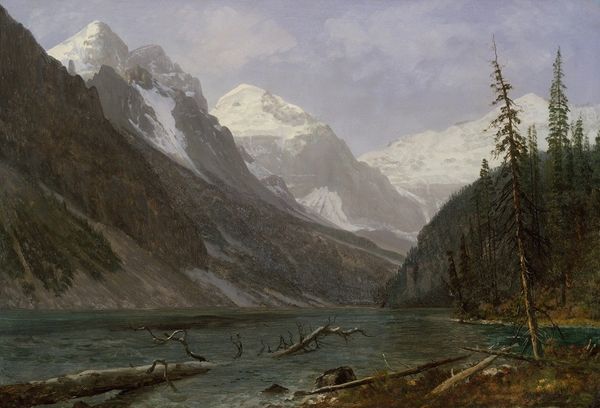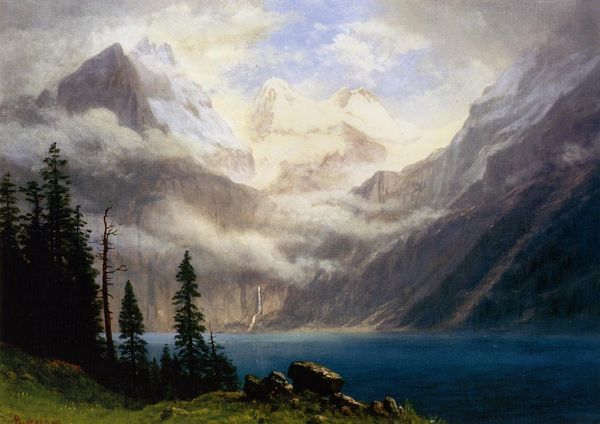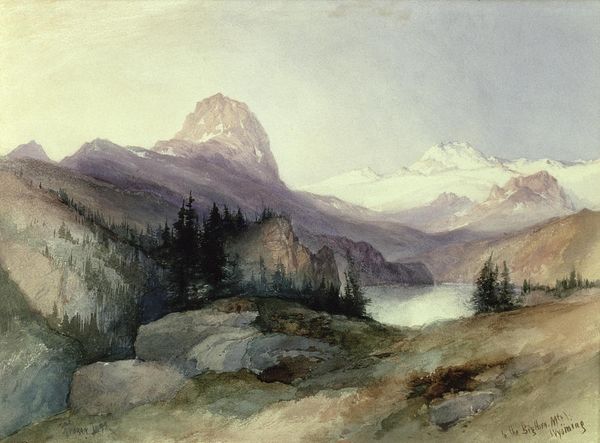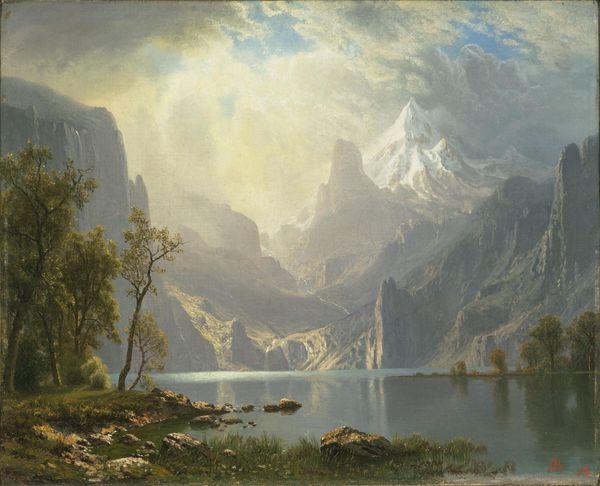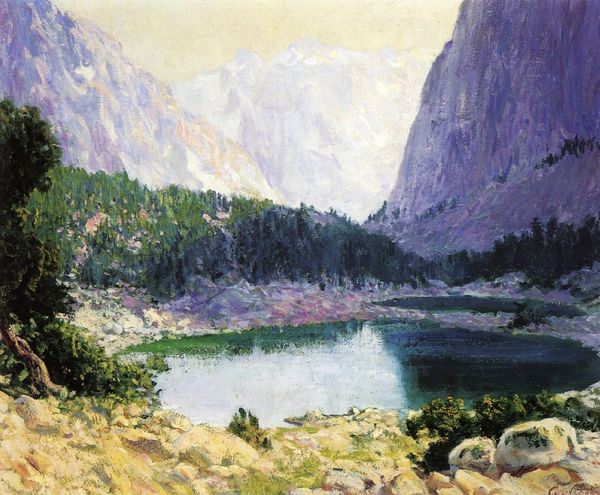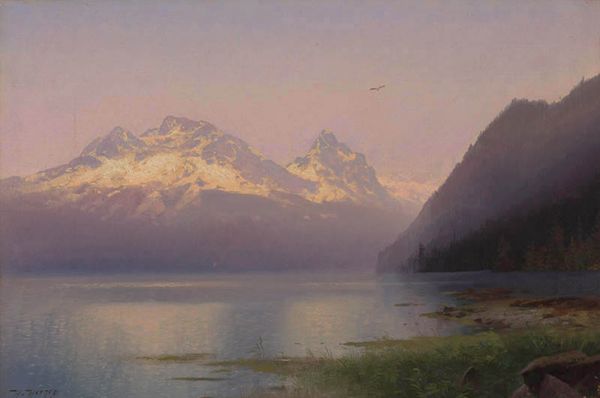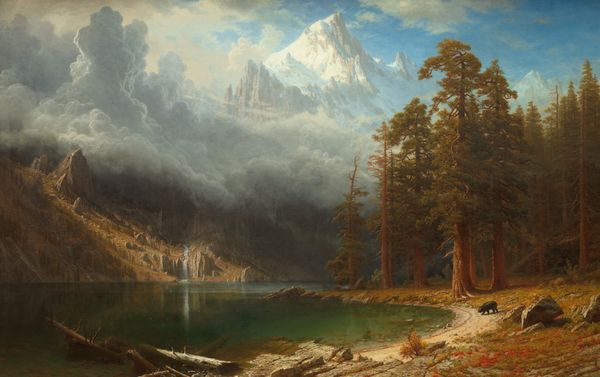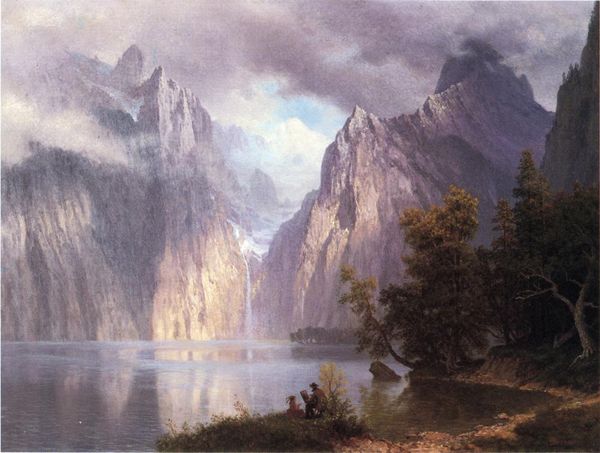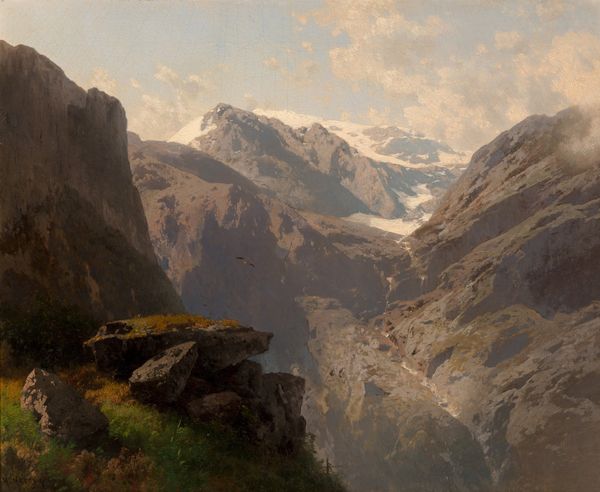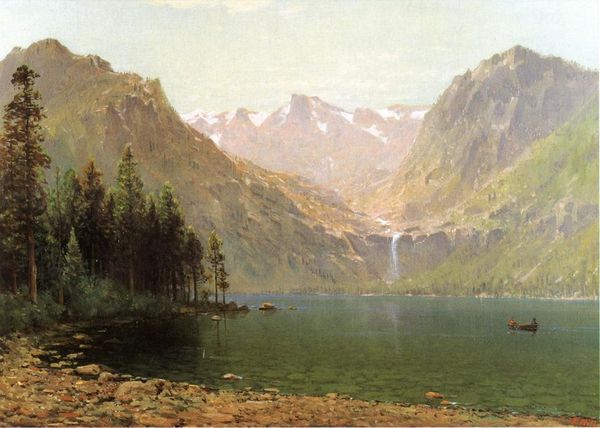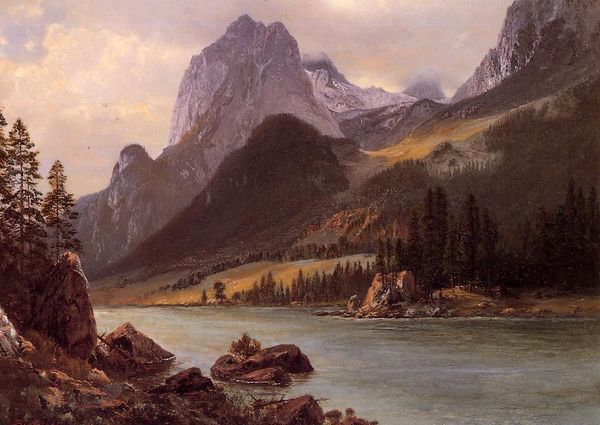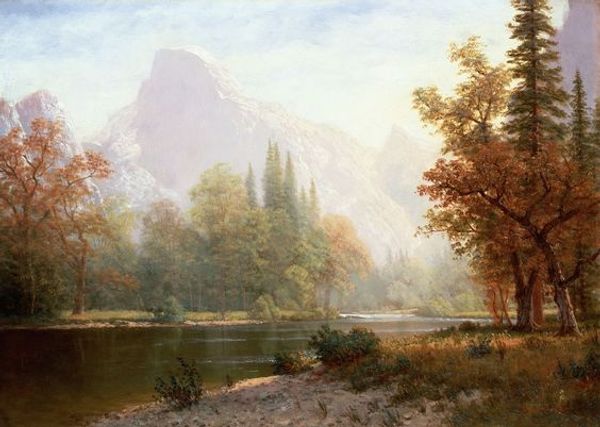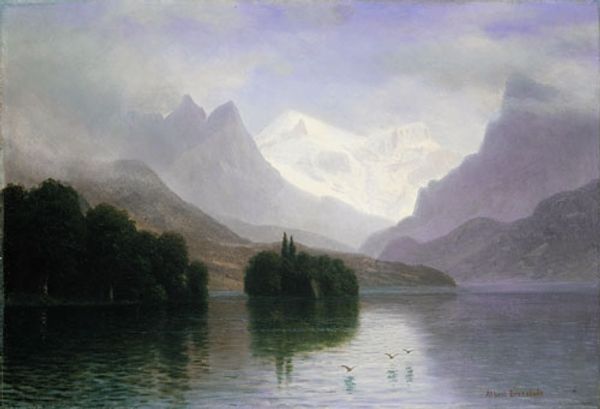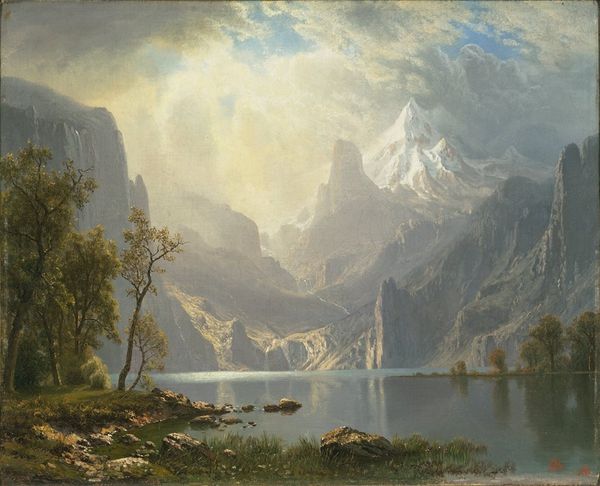
Copyright: Public Domain: Artvee
Curator: At first glance, the subdued tones create a sense of vast stillness, a scene so pristine it feels almost otherworldly. The towering peaks mirrored in the glassy lake amplify this feeling. Editor: You're right, there's an incredible tranquility here. Let's delve a little deeper. This oil painting is titled "Pragser Wildsee," created around 1880 by Edward Theodore Compton. What is especially interesting is that the Pragser Wildsee, or Lake Prags, in English, had a peculiar political life. Curator: Fascinating! Its serene image stands in contrast to some political narratives that it has carried. Symbolically, still, the painting feels loaded, it brings to mind ideas of reflection, clarity, and the sublimity of nature – concepts so resonant in the late 19th century. It seems to draw from the wellspring of Romanticism and perhaps Realism in his technique, to me it carries overtones of longing. Editor: Absolutely, the longing for connection with pure and untouched landscapes gained momentum precisely during the industrial revolution and increased urbanization. Art like this satisfied it, the same impulse fueled the rising popularity of national parks at the time. Think about it, idealized nature became both a refuge and, subtly, a marker of national identity and the "national" landscape in Germany at the time, in a way a celebration of cultural geography, of *heimat*. Compton here positions it as something deeply peaceful, an alternative reality free of modern problems, but even this apparent lack of signs hints at their hidden presence, it makes the observer think. Curator: I'm drawn to how Compton uses the reflected mountain in the water; this mirroring doubles the emotional impact. It echoes a cultural fascination with self-reflection and the human relationship with nature as a mirror of one's own soul, you think about romantic-era philosophers, of course. The symbolic significance of reflections is potent in many traditions, so it touches on some pretty universal, eternal motifs. Editor: True, but Compton presents not just nature in the mirror. He stages how Germans desired to see themselves –– as intimately connected to an unspoiled landscape. And, by extension, this painting itself serves as an invitation. Curator: The subtle details certainly add to that effect! Editor: So while looking at "Pragser Wildsee," we glimpse both the artistic and the socio-political currents swirling beneath the surface of seemingly placid water. Curator: Exactly, the canvas itself holds cultural memory of Germany, through symbolic and visual representation.
Comments
No comments
Be the first to comment and join the conversation on the ultimate creative platform.
